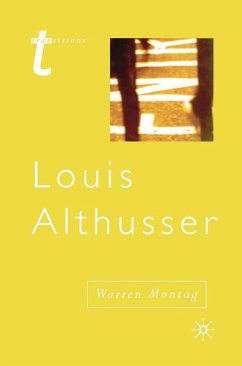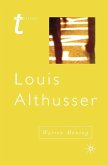The publication of Louis Althusser's autobiography, The Future Lasts Forever, shattered the myth of Althusser as austere structural Marxist. It not only illuminated the private life of this public thinker, but suggested that his previously published works could be read very differently.
Louis Althusser is the first major overview of Althusser's work since the publication in French of thousands of pages of essays, books and letters unknown before 1990, and makes a strong case for a radical reconsideration of his work in the light of this new material. Focusing particularly on Althusser's writings on art, theatre and literature (as well as those of Althusser's collaborator, Pierre Macherey), Warren Montag traces the contradictory development of Althusser's thought from the early sixties to his autobiography. Additional material includes an annotated bibliography of texts by and on Althusser, and the book also features a previously untranslated essay by the theorist on Brecht and Marx.
Louis Althusser is the first major overview of Althusser's work since the publication in French of thousands of pages of essays, books and letters unknown before 1990, and makes a strong case for a radical reconsideration of his work in the light of this new material. Focusing particularly on Althusser's writings on art, theatre and literature (as well as those of Althusser's collaborator, Pierre Macherey), Warren Montag traces the contradictory development of Althusser's thought from the early sixties to his autobiography. Additional material includes an annotated bibliography of texts by and on Althusser, and the book also features a previously untranslated essay by the theorist on Brecht and Marx.









